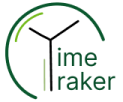What is Fixed Cost and How It’s Used in Business

Understanding the nature of business expenses is crucial for effective financial planning and management. One key concept is fixed cost, a type of expense that remains constant regardless of the level of production or sales. In this article, we will explore what is fixed cost, how it differs from other expenses, and why it’s essential for businesses. We’ll also cover what are fixed expenses, the importance of cost-value analysis, and the role of an expense tracker in keeping track of fixed costs. Additionally, we will discuss how business expense management software, such as Time Traker, can help businesses streamline their financial processes and generate detailed expense reports.
What is Fixed Cost?
At its core, a fixed cost is an expense that does not change in response to production volume or sales fluctuations. Whether your company produces 100 units or 1,000, your fixed costs remain the same. For example, rent, salaries of full-time employees, insurance premiums, and loan payments are all fixed costs. These costs must be paid regardless of the business’s level of activity, making them predictable and easy to plan for.
Fixed costs are an important part of a company’s overall expense structure, and therefore, knowing how to manage them can greatly influence profitability. Thus, for businesses to thrive, understanding what is fixed costs and how to allocate resources efficiently is critical.
Types of Business Costs: Fixed vs. Variable Costs
To better understand what is fixed costs, it’s useful to differentiate them from variable costs. Unlike fixed costs, variable costs fluctuate based on production output. For instance, raw materials, shipping fees, and utility expenses are variable costs that change according to how much your business produces.
By conducting a cost-value analysis, businesses can determine how fixed and variable costs impact overall profitability. This analysis helps identify which costs can be adjusted or reduced and which ones need to remain constant for the business to function smoothly.
What is Fixed Cost and How It’s Applied in Business

Understanding what fixed costs play an integral role in business budgeting and forecasting. Since fixed costs remain unchanged over time, businesses can predict them more accurately, thereby leading to better financial stability. Let’s examine how businesses use fixed costs in their operations:
1. Budgeting
Fixed costs allow companies to create a stable budget since they don’t fluctuate with production levels. As a result, this stability enables businesses to plan for the future with greater certainty and confidence.
2. Break-Even Analysis
Fixed costs are a critical component of a business’s break-even analysis. This calculation determines how much a company must sell to cover both fixed and variable costs. Once the break-even point is reached, any additional sales contribute to profit.
3. Financial Planning
Because fixed costs remain consistent, they are useful for long-term financial planning. Businesses can use fixed costs to assess the minimum revenue needed to stay operational and make informed decisions about investments, staffing, and expansion.
What are Fixed Expenses in Business?
In the context of business accounting, what are fixed expenses refer to the same category as fixed costs—those that do not vary based on production or sales. These expenses are necessary for keeping the business running, regardless of the level of output. For example, some common fixed expenses include:
- Rent for office space or manufacturing facilities
- Salaries for permanent employees
- Loan repayments or lease agreements
- Insurance premiums
- Equipment depreciation
Businesses should regularly review their fixed expenses to ensure they are not unnecessarily inflating operational costs. In this regard, tools such as Time Traker, an efficient expense management software, help businesses monitor these fixed expenses, ensuring they stay within budget.
The Role of an Expense Tracker in Managing Fixed Costs
Effective management of fixed costs requires accurate tracking. This is where an expense tracker becomes invaluable, allowing businesses to record, categorize, and monitor their fixed expenses. By using an expense tracker, companies can gain better control over their financial outflows and make data-driven decisions.
1. Improved Expense Visibility

Expense trackers provide real-time insights into your fixed costs, giving you a clear picture of where your money is going. Moreover, this transparency helps businesses identify opportunities for cost reduction and optimization.
2. Automated Reporting
Manually generating expense reports can be time-consuming and prone to error. Instead, using expense management software like Time Traker, businesses can automatically generate detailed expense reports that help them analyze their financial data and track trends over time.
3. Streamlined Budgeting Process
An efficient expense tracker simplifies the budgeting process by organizing your fixed expenses. Therefore, by having a clear overview of fixed costs, businesses can allocate resources more effectively and ensure they stay within budget.
How to Use Cost Value Analysis to Understand Fixed Costs
A key method for managing fixed costs is conducting a cost-value analysis. Specifically, this analysis evaluates the costs associated with producing a product or service in relation to the value it generates. For fixed costs, the goal is to determine how they contribute to the overall value of the business and whether they can be reduced without affecting operations.
Steps to Conduct Cost Value Analysis for Fixed Costs:
- List Fixed Costs: Identify all your fixed costs, including rent, salaries, and loan repayments.
- Assign Values: Determine the value these fixed costs provide to your business. For instance, an office space may be crucial for operations, but if it’s underutilized, consider downsizing.
- Analyze Trends: Look at your expenses over time to spot trends. If your fixed costs are increasing without delivering additional value, explore ways to cut back.
- Use Tools: Tools like Time Traker can assist by tracking costs and providing insightful data to make this analysis easier and more accurate.
How Expense Management Software Can Optimize Fixed Costs

Businesses today are turning to technology to improve efficiency, and expense management software plays a vital role in this transformation. Using software like Time Traker, businesses can automate their financial tracking processes, thereby reducing the manual effort required to monitor fixed expenses.
Key Benefits of Using Expense Management Software:
- Automation: Automates the recording of expenses, reducing errors and saving time.
- Real-Time Tracking: Provides real-time updates on fixed costs and generates insightful expense reports.
- Integration with Accounting Tools: Solutions like Time Traker seamlessly integrate with accounting platforms like QuickBooks, ensuring your financial records are always up to date.
In particular, Time Traker allows businesses to simplify their fixed cost management by automating expense tracking, ensuring accuracy, and providing actionable insights. Consequently, this enables companies to keep track of their fixed costs effortlessly while focusing on growth.
Conclusion
Understanding what is fixed cost and how it’s used in business is essential for effective financial management. Fixed costs provide stability and predictability, making it easier for businesses to budget and forecast future expenses. Furthermore, with tools like expense trackers, businesses can monitor their fixed expenses efficiently and generate detailed expense reports to ensure optimal cost management.
